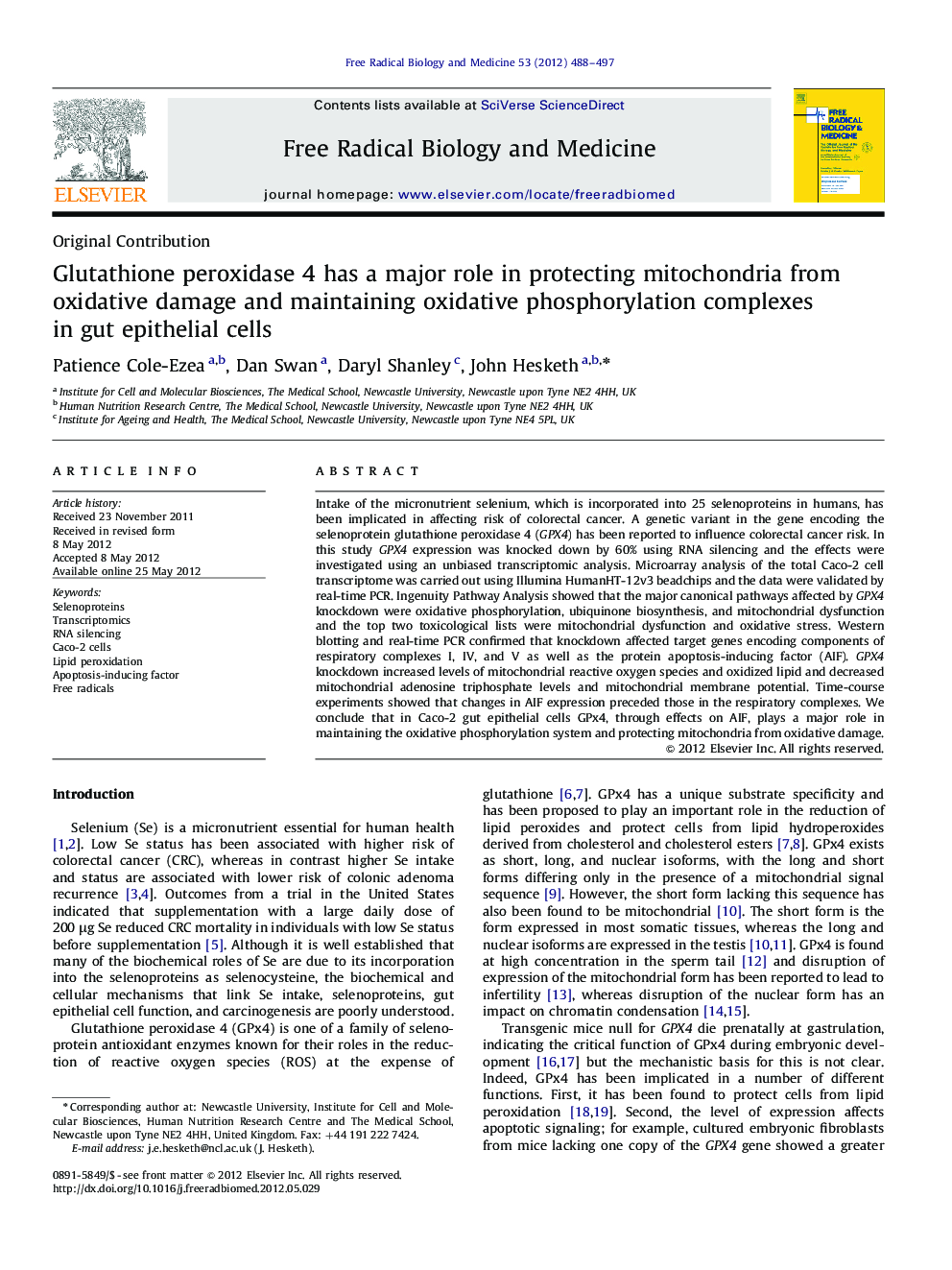| Article ID | Journal | Published Year | Pages | File Type |
|---|---|---|---|---|
| 1908675 | Free Radical Biology and Medicine | 2012 | 10 Pages |
Intake of the micronutrient selenium, which is incorporated into 25 selenoproteins in humans, has been implicated in affecting risk of colorectal cancer. A genetic variant in the gene encoding the selenoprotein glutathione peroxidase 4 (GPX4) has been reported to influence colorectal cancer risk. In this study GPX4 expression was knocked down by 60% using RNA silencing and the effects were investigated using an unbiased transcriptomic analysis. Microarray analysis of the total Caco-2 cell transcriptome was carried out using Illumina HumanHT-12v3 beadchips and the data were validated by real-time PCR. Ingenuity Pathway Analysis showed that the major canonical pathways affected by GPX4 knockdown were oxidative phosphorylation, ubiquinone biosynthesis, and mitochondrial dysfunction and the top two toxicological lists were mitochondrial dysfunction and oxidative stress. Western blotting and real-time PCR confirmed that knockdown affected target genes encoding components of respiratory complexes I, IV, and V as well as the protein apoptosis-inducing factor (AIF). GPX4 knockdown increased levels of mitochondrial reactive oxygen species and oxidized lipid and decreased mitochondrial adenosine triphosphate levels and mitochondrial membrane potential. Time-course experiments showed that changes in AIF expression preceded those in the respiratory complexes. We conclude that in Caco-2 gut epithelial cells GPx4, through effects on AIF, plays a major role in maintaining the oxidative phosphorylation system and protecting mitochondria from oxidative damage.
► Glutathione peroxidase 4 (GPx4) function was studied using siRNA and transcriptomics. ► Pathway analysis highlighted oxidative phosphorylation and mitochondrial function. ► GPX4 knockdown affected expression of components of complexes I, IV, and V. ► GPX4 knockdown led to increased mitochondrial damage and apoptosis-inducing factor (AIF) protein levels. ► We propose that GPx4 exerts its protective effects on mitochondria through AIF.
